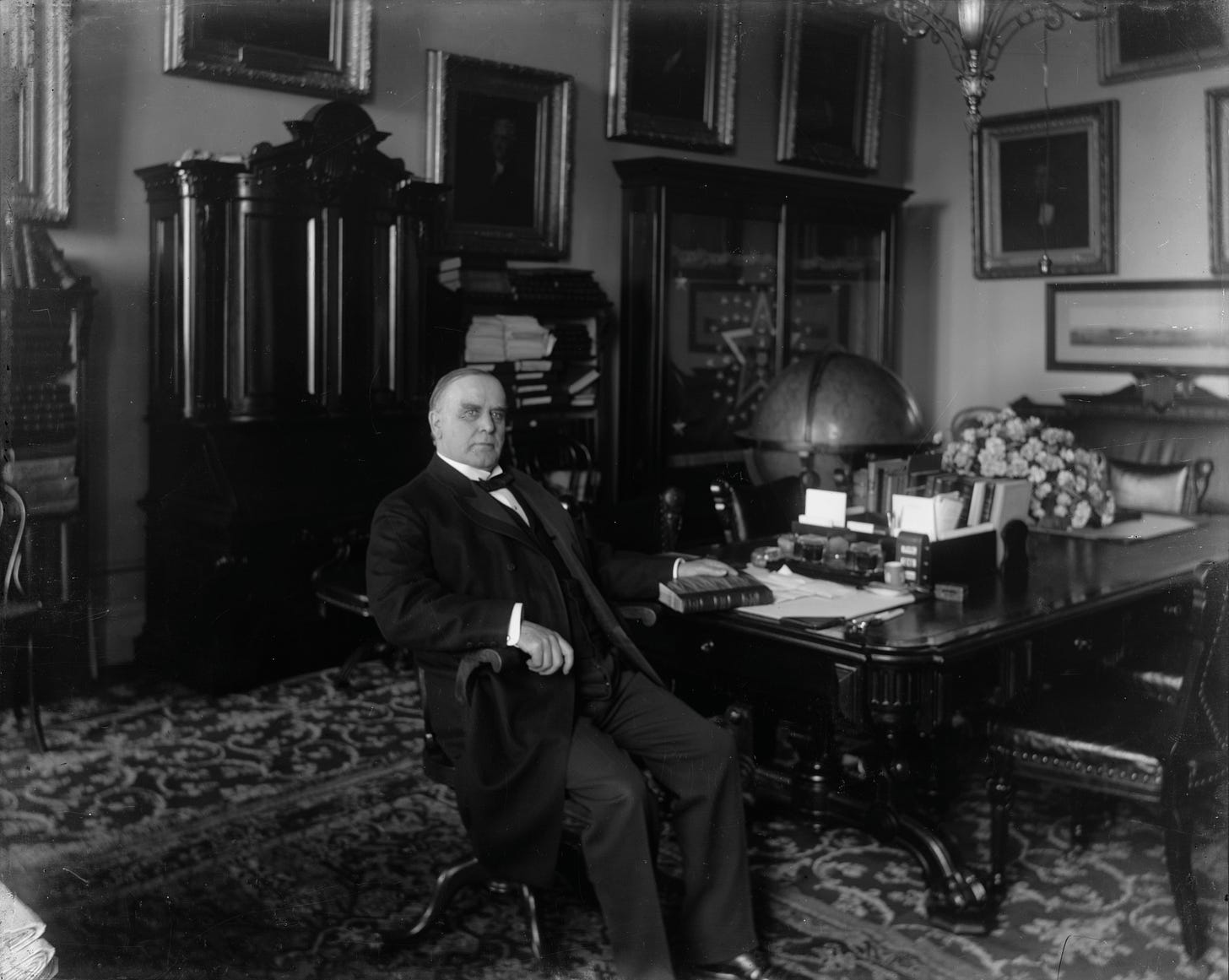📸 With corporate outlets obeying in advance, supporting independent political media is more important right now than ever. Public Notice is possible thanks to paid subscribers. If you aren’t one already, please click the button below and become one to support our work. 📸
At the White House yesterday, Donald Trump announced he’s imposing a 25 percent tariff on all imported cars. He’s described April 2, the day in which his reciprocal tariffs regime will supposedly be fully implemented, as “liberation day” for the United States.
But scratch the surface of this bluster and it quickly becomes clear that Trump’s ideas about tariffs and their alleged benefits are a combination of confused and baseless. For instance, when he was asked last month if he’s considered directing federal agencies to study how tariffs will actually impact prices, Trump indicated it hadn’t crossed his mind.
In lieu of data, why does Trump think tariffs are so great? Because he seems to have deluded himself into believing that William McKinley, president from 1897 until his assassination in 1901, presided over a golden age of America thanks to his extreme and short-sighted protectionism.
“We were the richest relatively — think of this — from 1870 to 1913. That was our richest,” Trump claimed during a speech last month. “Because we collected tariffs … we had so much wealth. Of course, now we give it away to transgender … everybody gets a transgender operation.”
Trump has even gone as far as to suggest that McKinley was a martyr for the cause of tariffs.
With Trump’s tariffs promising to be a big topic of conversation ahead of next week’s “Liberation Day,” we connected with Eric Rauchway, a UC Davis distinguished history professor and an expert on early 20th century America, to better understand what exactly Trump is getting wrong.
“The McKinley tariff was one of a series of laws passed in Congress in the 1890s that actually precipitated a severe economic downturn. If we had better data on it, we’d probably think of it like the Great Depression,” Rauchway told us. “There are millions of people unemployed. This is an era where you have armies of the unemployed protesting. It’s what helped give rise to the progressive movement.”
Rauchway went on to point out that ultimately, Trump’s ideas about the economy are incoherent.
“He wants the society of the 1950s with the policies of the 1890s. But you literally don’t get the society of the 1950s without a comprehensive rejection of the policies of the 1890s, even by Republicans,” he said.
A full transcript of Rauchway’s conversation with Public Notice contributor Thor Benson, lightly edited for length and clarity, follows.
Thor Benson
Trump loves to talk about the late 1800s and early 1900s, how we paid for everything with tariffs instead of income taxes, and how great that period was. But I’m familiar with that era and know he’s full of it. There was massive income inequality and basically no social safety net. What’s he getting wrong about how average Americans lived during that time?
Eric Rauchway
You’d have to ask the average American who kept voting for socialists and populists and progressives. [laughs] They clearly wanted some kind of change.
That was the great era of unionization. It was the era of broad social protests. Many of the protesters thought tariffs were the cause of their misery.
A tariff is a regressive tax. It hurts people more the less money they have. The most progressive thing progressives wanted to do back then was have an income tax.
There had been an income tax during the Civil War, during the Lincoln administration, and then there was another one in the 1890s, but the Supreme Court said it was unconstitutional. One of the big things progressives wanted to do was bring that back, and ultimately they did with the 16th Amendment in 1913. That allowed the federal government to fund itself with income taxes rather than tariffs. That relieved a lot of people’s sense of unfairness toward the federal government.
The other problem with tariffs, people would say at the time, is that a tariff is the mother of trusts. The current president does not give evidence of understanding the difference between a tariff for revenue and a tariff for protection.
If you set a tariff at three percent, you collect three percent on all of your imports. That’s great. If you set a tariff at 300 percent, then nobody buys imports, so there’s no revenue collection. The president seems to believe he can impose prohibitively high tariffs and collect revenue, which you can’t do.
Thor Benson
But he says McKinley was the best.
Eric Rauchway
The president keeps saying he admires McKinley because of his high tariffs, but there are a couple things people these days like him seem to not understand very well.











